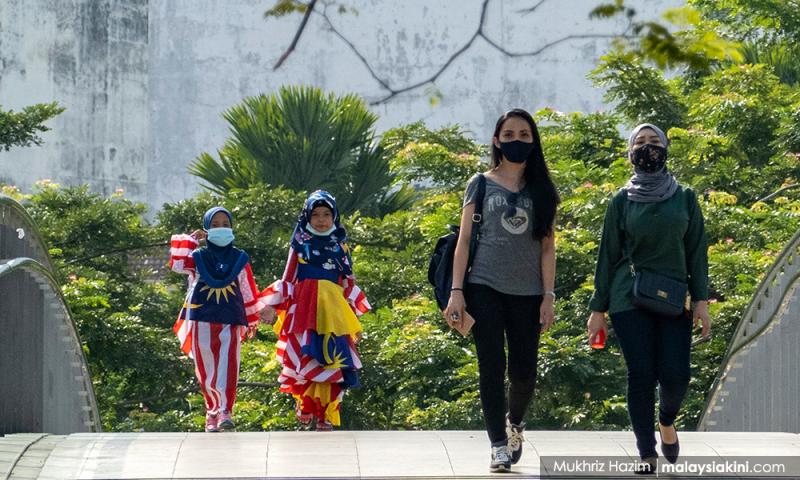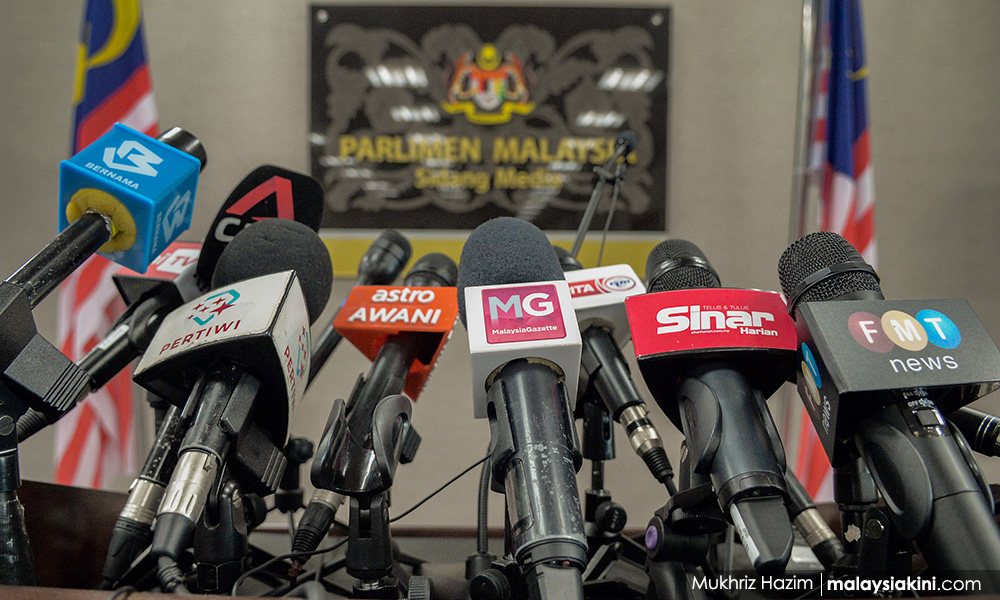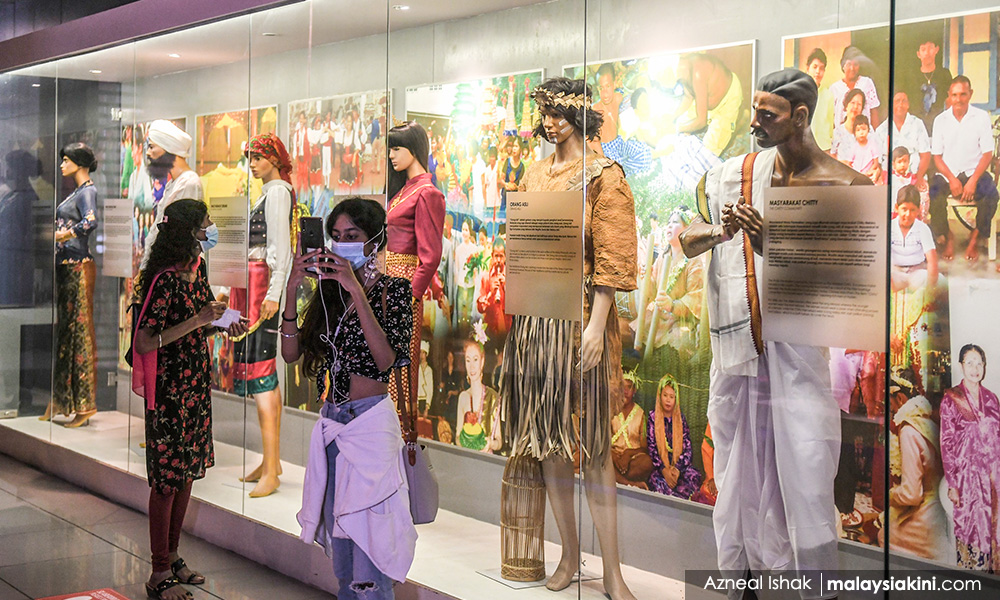
Eric Loo
COMMENT | We witnessed a flicker of hope in 2018. But the candle burned out two years on when the racial demon rose from party ranks to tear apart what short-term reforms were achieved.
So, here we go again. Nincompoops wallowing in the racial rut, manipulating the imagined insecurities of the conservative Malay votes and campaigning on who could shout loudest for their respective constituency.
It will be a while before progressive leadership re-emerges to reset our “first world infrastructure, third world mentality”, which the former prime minister Abdullah Ahmad Badawi attempted but fell short of.
Even as the current insular leadership manipulates the “untuk agama, bangsa dan negara” ideology to win elections, we should relegate such rut politics to the unworthy news pile.
Here’s where socially conscious journalists ought to highlight the people’s agenda, not whatever the incumbents say. Official narratives do not always tell the whole story - and are tainted by power play and self-interest. Journalists have a duty to notice the cracks.
Journalists do set the public agenda in their headlines. They re-construct and re-present events. Their write-ups do prompt readers on what to think of certain issues. Socially conscious journalists ultimately decide which politicians should be heard, and who deserves to be fed to the dung beetle.
Giving credence to idiotic remarks by idiotic politicians only serves to seed their racialisation of issues that bear no relation to whether a citizen is Malay, Chinese or Indian. Racial remarks and statements should be multiple checked against established facts and contextualised to changing realities.
COMMENT | We witnessed a flicker of hope in 2018. But the candle burned out two years on when the racial demon rose from party ranks to tear apart what short-term reforms were achieved.
So, here we go again. Nincompoops wallowing in the racial rut, manipulating the imagined insecurities of the conservative Malay votes and campaigning on who could shout loudest for their respective constituency.
It will be a while before progressive leadership re-emerges to reset our “first world infrastructure, third world mentality”, which the former prime minister Abdullah Ahmad Badawi attempted but fell short of.
Even as the current insular leadership manipulates the “untuk agama, bangsa dan negara” ideology to win elections, we should relegate such rut politics to the unworthy news pile.
Here’s where socially conscious journalists ought to highlight the people’s agenda, not whatever the incumbents say. Official narratives do not always tell the whole story - and are tainted by power play and self-interest. Journalists have a duty to notice the cracks.
Journalists do set the public agenda in their headlines. They re-construct and re-present events. Their write-ups do prompt readers on what to think of certain issues. Socially conscious journalists ultimately decide which politicians should be heard, and who deserves to be fed to the dung beetle.
Giving credence to idiotic remarks by idiotic politicians only serves to seed their racialisation of issues that bear no relation to whether a citizen is Malay, Chinese or Indian. Racial remarks and statements should be multiple checked against established facts and contextualised to changing realities.

Journalists’ function
The national unity minister, for instance, is more given to making motherhood statements than actually getting down to doing the groundwork of reconciling a dysfunctional “Keluarga Malaysia”. (The National Unity Ministry’s directory of officers shows that out of 240 appointees, 21 are non-Malays. That’s less than 10 percent. So much for inclusivity).
Should journalists then be dispassionate observers of political events and report accordingly, even if the politician’s patronising statement is factually incorrect and morally downright wrong? Yes, and no.
Either way, the journalists’ function goes beyond straight reporting. Information technology has changed radically. So has journalism as a ‘public service’, even if generating revenue is its ultimate goal.
Falsehoods should be questioned and exposed for what they are - manipulation and lies. That was what The Sarawak Report did in its coverage of Najib and Rosmah, or what The Washington Post and New York Times did with the Trump presidency. We can do likewise.
Reporting for the ‘common good’
Malaysian journalists could take up the cudgels to propagate a political environment that gives every citizen a fair go at opportunities to improve their station in life. That’s reporting for the ‘common good’.
The ‘common good’, however, does not just happen. It evolves through the cooperative efforts of journalists and their readers. It is a “common good” only to the extent that all have fair and equitable access, given our skewed racial distribution (67.4 percent bumiputera, 24.6 percent Chinese, 7.3 percent Indians and 0.7 percent others).
Yes, this means that even exposing the class divisions and dismal disparity between the majority Malays in the heartland and Malay elites who have gotten rich and richer through political patronage. Deprivation and discrimination knock on every door, regardless of race and religion.

Improving race relations
This leads to my final point. Improving race relations through legislation is limited in its efficacy. And yes, structural and ideological shifts need to occur too, before racialised politics can recede. That’s the big picture.
But on a micro-level, getting unstuck from the racial rut first starts with us, in our family, with our children, and among our social circles. A stock check on our lived experience with other racial groups will be revealing.
How many on our contact list are persons from other racial groups? When was the last time we invited home someone from another racial group for a meal? And, if our invitation was declined, do we know why?
What can we do to respect the dietary and religious restrictions of those we invite home? How would we rank our knowledge and personal experience of other racial, cultural and religious groups?
Practical answers to these fundamental questions are equally simple: self-education and fostering real relationships with people from different cultures, races, classes - and yes, even sexual orientations.
No race relations programmes and feel-good slogans can bear fruit until we start to work on our inter-racial disposition, prejudice and inclination to stereotype, albeit unconsciously.
Change feels elusive for a country steeped in racial politics. But there is a starting point somewhere. That’s when journalists - and their readers - consciously attempt to cross racial boundaries and advocate for the kind of society we want to live in, raise our family, and how we are to achieve it.
ERIC LOO was a journalist and media academic.

I can only say to Eric Loo - "Good luck because you are pissing in the wind"
ReplyDelete